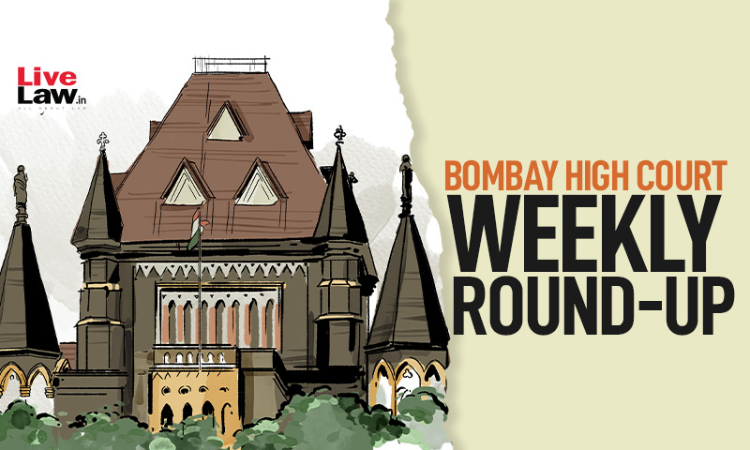Bombay High Court Weekly Round-Up: April 1 To April 7, 2024
Amisha Shrivastava
10 April 2024 10:30 AM IST

Next Story
10 April 2024 10:30 AM IST
Nominal Index [Citation 176 - 187]Suhas Manohar Wankhede v. Election Commission of India & Others 2024 LiveLaw (Bom) 176Kirloskar Pneumatic Company v. Kataria Sales Corporation 2024 LiveLaw (Bom) 177Riak Insurance and Financial Services & Ors. v. HDFC Bank Limited 2024 LiveLaw (Bom) 178Niranjani Chandramouli v. Amit Ganpathi Shet and Ors. 2024 LiveLaw (Bom) 179M/s. OM...
